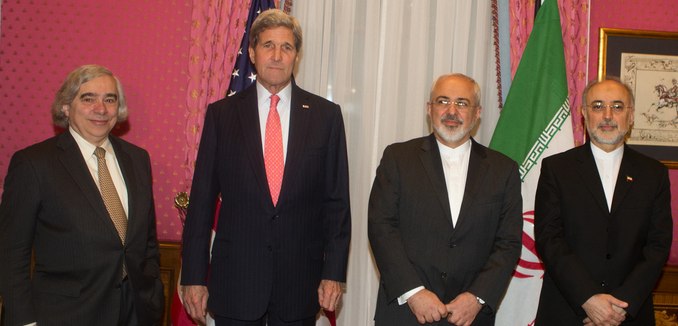The nuclear deal with Iran “concedes an enrichment capacity that is too large; sunset clauses that are too short; a verification regime that is too leaky; and enforcement mechanisms that are too suspect,” Eric Edelman, a former Defense Department official, and Ray Takeyh, a senior fellow on the Council for Foreign Relations, wrote in an op-ed Saturday in The Washington Post.
Edelman and Takeyh mapped out the administration’s opening position on Iran’s nuclear program and contrasted it to the terms agreed to in the final deal, formally known as the Joint Comprehensive Plan of Action (JCPOA).
Prior to the 2013 interim accord, the Obama administration’s position rested on relatively sensible precepts. The United States insisted that, given Iran’s practical needs, it should only have a symbolic enrichment program of a few hundred centrifuges, and that the Islamic republic could not be considered a member of the Nuclear Non-Proliferation Treaty (NPT) in good standing until it secured the trust and confidence of the international community in the peaceful nature of its program. These were not just U.S. aspirations but also the position of members of the “P5+1” powers — the five U.N. Security Council members plus Germany.
These prudent parameters were overtaken by a cavalcade of concessions that began in 2013. The administration soon brandished the notion of a one-year breakout period that would allow Iran to maintain a substantial enrichment apparatus, in effect abandoning the goal of preventing development of an Iranian nuclear capability in favor of managing its emergence. The much heralded one-year breakout period will only shrink over time as the JCPOA concedes that Iran can begin phasing out its primitive centrifuges in favor of more advanced ones. Even more troublesome is the agreement’s stipulation that after its limits expire, the “Iranian nuclear program will be treated in the same manner as that of any other non-nuclear weapon state party to the NPT.” This means that Iran can proceed with the construction of an industrial-sized nuclear infrastructure similar to that of Japan. At that time, Iran could easily sprint to the bomb without risking timely detection.
The enforcement measures that the administration has promised “[fall] short” of what is necessary to enforce Iran’s compliance. The authors recommend that Congress reject the agreement, which would force the administration to re-open negotiations to strengthen the terms of the deal.
The JCPOA stands as one of the most technologically permissive arms-control agreements in history. All is not lost, however, and with sensible amendments the accord can be strengthened. The United States should return to the table and insist that after the expiration of the sunset clause, the P5+1 and Iran should vote on whether to extend the agreement for an additional 10 years. A majority vote every 10 years should determine the longevity of the agreement, not an arbitrary time-clock. Further, the JCPOA has usefully stressed that all of Iran’s spent fuel from its heavy-water reactor will be shipped out permanently. A similar step should be taken with Iran’s enriched uranium. The revised agreement should also limit Iran to the first-generation centrifuges and rely on “anytime, anywhere access.” These and other such measures could help forestall an Iranian bomb and stem the proliferation cascade in the Middle East that this agreement is likely to trigger.
When the deal was announced last week, The New York Times reported that “[n]othing in the deal announced Tuesday eliminates Iran’s ability to eventually become a nuclear threshold power — it just delays the day.” Because the deal allows for a 24-day process before suspected nuclear sites would be subject to inspections, and doesn’t force Iran to come clean about its past nuclear research, its verification scheme has been widely deemed to be inadequate.
[Photo: UNVIE U.S. Mission to International Organizations in Vienna / Flickr ]




